Best Foods to Boost Egg Quality and Get Pregnant Faster
Female Infertility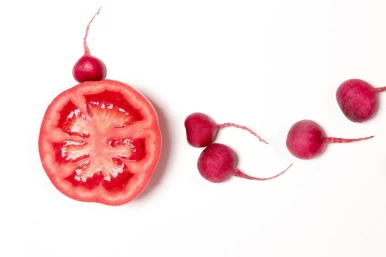
having healthy eggs is one of the most important factors in having a full-term pregnancy and a healthy baby. The quality and quantity of female eggs play an important role in getting pregnant naturally. Some women are unable to conceive naturally due to having weak, immature eggs; therefore, they have to use assisted reproductive technologies (ART) such as IVF and IUI treatment.
The quality of female eggs depends on various factors such as her age, environmental factors, level of hormones in her meals, her lifestyle, and how she manages her stress. Having a better diet and changing lifestyle can be effective in improving the quality of egg follicles in advanced ages. Of course, this diet must be followed 90 days before ovulation because, in this period, the ovary is preparing for the ovulation process. In this article, we explain what factors affect the quality of eggs and what to eat to improve fertility.

The Best Diet for Healthy Egg
The best diet for a healthy egg depends on your general health, lifestyle, and the current condition of your sex cells. In this section, we enumerate the foods and supplements needed to have high-quality egg cells.
- Full-fat dairy products: Once or twice a day
- Unsaturated fats: 33-44 grams (5-20% of your calories)
- Omega 3: 500 to 1000 mg daily
- Pasture-raised meat and chicken: 5 ounces (140 grams)
- Organic fruits and vegetables: 2 cups a day
- Nuts and seeds: 2 servings of nuts a day
- Dietary supplements and vitamins: 500mg-2000 mg per day
- Iron supplement: 45 mg a day
- Royal jelly: 500 – 3000 mg a day
- Foods rich in antioxidants: twice a day
- Fiber-rich foods: 25-28 grams per day
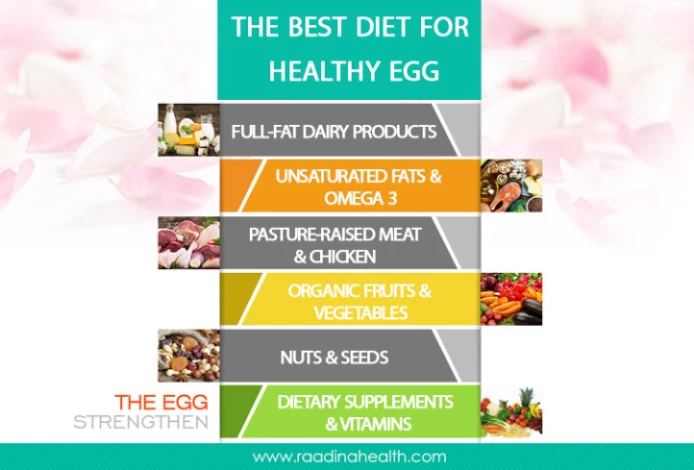
Full-fat dairy products
Although most people use low-fat dairy products to lose weight, having full-fat dairy products can be very effective in enhancing ovarian follicles. Removing fat from milk leads to an imbalance in sex hormones and prevents the release of eggs from follicles.
Unsaturated fats and Omega 3
Consuming unsaturated fats and omega-3, unlike trans and saturated fats, is necessary for the mother’s health and improving the quality of her eggs, especially in her older ages. Foods such as avocados, nuts, seeds, and oily fish (like salmon) are rich in useful fats. Omega-3 found in fish improves the symptoms of polycystic ovarian syndrome (acne, oily skin, facial hair, weight gain, etc.); however, having oily fish more than twice a week is not recommended as it has mercury. Mercury adversely affects an infant’s hearing, vision, and brain development.
In general, having an excessive amount of trans-unsaturated fatty acids disrupts the ovulation process due to its effect on insulin hormones. It should be noted that these types of fats are mostly found in processed and canned foods, some butter, sausages, some pre-cooked foods, processed oils, etc.
Pasture-raised meat and chicken
Pasture-raised meat and chicken are healthier than factory-farmed ones. Industrial chickens, cows, and sheep cannot behave naturally, do not receive natural light, and are fed with non-organic ingredients. On the other hand, pasture-raised livestock eat organic grass, seeds, insects, and earthworms and spend at least a few hours in an open area every day. Although pastured livestock are also fed supplements and vitamins, they are generally healthier than factory-raised ones. It is suggested that you have healthy and organic meat and chicken for 90 days before trying to conceive. Such meat improves female egg quality and increases the chance of pregnancy.
Organic fruits and vegetables
Chemical toxins and pesticides in fruits and vegetables can have negative effects on male and female fertility. Therefore, you should only have fresh, organic fruit and vegetables to avoid hormonal imbalance and damage to your sex cells. The best diet for healthy eggs includes two servings of the following vegetables and fruits a day:
- Leafy vegetables like broccoli, lettuce, kale, and spinach
- Lentil and bean
- Tomato
- Beet
- Apple
- Banana
- Different types of berries
Nuts and seeds
Having nuts and seeds such as walnut, almond, flaxseed, Brazilian nut, and chia seed every day reduces the level of bad cholesterol (low-density lipoprotein) in the blood, reduces blood sugar, balances the hormonal level, and improves the symptoms of polycystic ovarian syndrome. These foods are rich in Omega-3 fatty acids, iron, healthy fats, fibre, and minerals, so they can improve female eggs to a great extent.

Dietary supplements and vitamins
Vitamin E: it is very effective in enhancing female egg quality and the production of healthy sperm. This vitamin is widely found in sunflower and olive oil, corn, almonds, fresh vegetables, carrots, soybeans, potatoes, dairy products, sheep’s liver, and fruits such as peach, avocado, mango, pumpkins, apricot, cantaloupe, and kiwi.
Vitamin A: it plays a crucial role in producing and improving the quality of female eggs. This vitamin is also necessary for maintaining a healthy pregnancy and preserving the ovarian reserve in advanced ages.
Vitamin D3: it is needed to improve female egg quality and ovarian function. It also helps mature the eggs, regulates the hormones, and supports embryo development after implantation.
Vitamin B12: it is essential for the development of female eggs and normal ovulation. Deficiency of B12 in women of reproductive age leads to anovulation, impaired egg development, and low-quality embryos.
For all these reasons, taking dietary supplements and multivitamins is necessary for enhancing female egg quality. Depending on your overall health, the doctors usually recommend taking 500mg to 2000mg of supplements per day from 90 days before conceiving.
Iron supplements
Taking iron supplements before pregnancy can reduce the risk of ovulation disorders caused by anemia. Of course, research has shown that animal sources of iron are not particularly effective on fertility, and only non-animal sources are useful. On the other hand, since non-animal sources of iron are hardly absorbed by the body, it is better to take them with food or vitamin C supplements.
Royal jelly
Royal jelly is the food of bee larvae and adult queens. This milky jelly is so effective in improving female eggs that the queen bee lays about 2,000 eggs per day by consuming it. It contains carbs, protein, amino acids, fatty acids, vitamins, and minerals, all substances needed for the production of sex hormones. If you have royal jelly for three months before natural pregnancy or IVF, the quality and quantity of your eggs will be boosted. It’s worth mentioning that if you are allergic to honey and similar products, you should not use royal jelly.

Foods rich in antioxidants
Eating foods containing antioxidants such as folate (folic acid) and zinc increases the couple's fertility and prevents damage to sex cells by neutralizing free radicals. Foods such as vegetables, fruits, seeds, nuts, and any food containing beta-carotene, lutein, vitamin E, and vitamin C are rich in antioxidants, and you have to eat them twice a week.
Fiber-rich foods
Adding more fiber-rich foods to your plate improves your fertility by balancing your blood sugar and hormone levels and helps eliminate excess amounts of estrogen. Rich sources of fiber include sweet potatoes, avocados, fruits, legumes, and vegetables. It is believed that every woman needs about 25 grams of fiber per day. Also, consuming 10 grams of extra fiber each day reduces the risk of fertility problems in women over 32 years old by 44% and increases the quality of their egg cells.

Other Foods to Improve Female Eggs
- Different types of cabbage, such as broccoli, radish, and cauliflower
- Pumpkin and sesame seeds
- Daily intake of royal jelly from 3 months before pregnancy or IVF. This helps increase the production of sex hormones as well as the quantity and quality of female eggs.
- Fish without mercury, such as trout or salmon
- Red berries
- Leafy vegetables such as spinach
- Spices such as turmeric and ginger
- Healthy fats such as coconut oil, almond oil, sesame oil, etc.
- One prenatal multivitamin each day
- Foods rich in antioxidants protect egg cells from free radicals damaging their DNAs
- Red raspberry leaves between menstruation and ovulation
It's worth mentioning that a decrease in egg quality is not only related to environmental factors and our nutrition but also to our genetics AND general health.
Since the ovum is constantly exposed to free radicals, taking coenzyme Q10 supplements will improve the health and quality of the eggs. In fact, women who take 30 to 300 mg of CoQ10 antioxidant every day experience a successful pregnancy, especially the ones over 35 years old. Compared to its Ubiquinone type, Ubiquinol Coenzyme Q10 is about 8 times more effective in improving female fertility. So, if you want to have high-quality ovum in a few months, you'd better take Ubiquinol Coenzyme Q10.
Foods to Avoid While Trying to Conceive
When trying to conceive, certain foods should be avoided as they damage the egg cells and the ovaries. In this section, we have gathered almost all foods that may lower the quality of your ovum.
Fish containing mercury
Fish with mercury, such as sharks, swordfish, barramundi, Tilefish, sea bass, etc., can:
- Damage to the egg cells
- Adversely, it changes the ovarian morphology
- Delay in the development and matureness of egg follicles
- Impede steroid hormone synthesis
- Impair the hearing, vision, and brain of the fetus
Therefore, it's better to replace mercury-containing seafood with shrimp, salmon, Pollock, and catfish when trying to conceive.
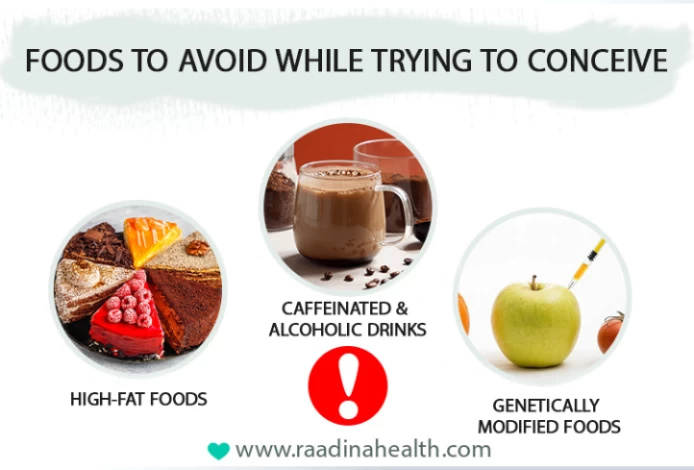
Artificial sweeteners
Excessive consumption of artificial sweeteners causes additional insulin production and increases the risk of polycystic ovarian syndrome (PCOS). PCOS prevents the eggs from being released from their follicles, so there would be no egg in the cervix to be fertilized with sperm. Therefore, if you want to get pregnant, you should replace artificial sweeteners with honey, dates, maple syrup, Agave syrup, and stevia. Here is a short list of foods with artificial sweeteners that should be removed from your pre-pregnancy diet.
- Ice-cream and cookies
- Cereals and oatmeal
- Unnatural juices
- Gum (even the sugar-free ones)
- flavored yogurts
- Syrups
- Canned fruit
- Sodas and diet cokes
Caffeinated and alcoholic drinks
Caffeinated and alcoholic drinks disrupt the hormonal balance, hinder ovulation, and increase the possibility of miscarriage. Doctors usually recommend taking less than 170 mg of caffeine daily to prevent such complications. Alcoholic beverages also reduce the egg quality, alter the ovulation cycle, and diminish the ovarian reserve.
Genetically modified foods
Using genetically modified (GM) foods has increased the rate of infertility in the last two decades. Transgenic foods affect the mother's metabolism, imbalance her hormones, and reduce the number and quality of her egg cells. So be careful of the “Non-GMO” label on your foods at least 90 days before ovulation if you intend to get pregnant.
High-fat foods
Having a high-fat diet affects a female's hormones, insulin level, and how well their ovaries work. Women with a BMI over 30 are more at risk of infertility as their leptin hormone is high and their ovulation is irregular.
How to Improve Egg Quality after 40?
The ovum is one of the oldest cells in the body, so it is more exposed to damage caused by free radicals over time. Daily intake of parental multivitamins during pregnancy and antioxidants can prevent the destruction of egg cells by free radicals. Studies have shown that coenzyme Q10 has a positive effect on egg quality in women over 35 years old. Fatty fish, chicken, red meat, lamb liver, whole grains, soybeans, peanuts, nuts, canola and soybean oil, wheat germ, eggs, as well as vegetables (especially spinach and broccoli) are rich in coenzyme Q10. They should be added to your pre-pregnancy diet.
Moreover, L-arginine is a type of amino acid that greatly improves the quality of eggs in women over the age of 40. They should consume 6-30 grams of L-arginine per day to have quality eggs and a successful pregnancy. Carob, chocolate, coconut, dairy products, gelatin, red meat, oats, peanuts, soybeans, walnuts, white flour, wheat, and wheat germ are rich in this amino acid. Make a mental note that you should only consume a reasonable amount of these organic compounds. Too much L-arginine can cause kidney problems, diarrhea, bloating, allergy, and low blood pressure.
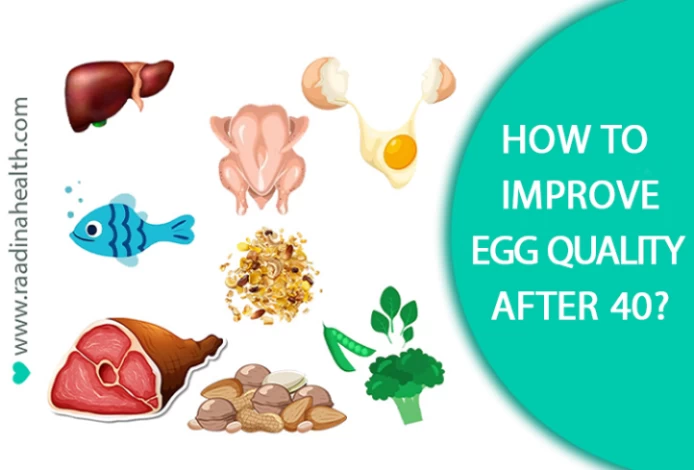
Conclusion
To sum up, stress increases the level of prolactin, cortisol, and other hormones in your body. These hormones disrupt the ovulation cycle and have a negative effect on the quality and quantity of your egg follicle. A large number of people manage their stress by doing sports, avoiding arguments or conflicts at work and home, using massage therapy, drinking herbal teas that calm their nerves, doing yoga, and practicing meditation.
Also, having a healthy lifestyle and a good diet controls your weight, increases blood flow in your reproductive system, balances your hormones, and removes the toxins from your body, all resulting in good-quality sex cells.
All in all, if you intend to have children at an older age, you should modify your diet and quit your unhealthy habits a long time before trying to conceive. Of course, you can also freeze your eggs to preserve your fertility and have children of your own at advanced ages. Harvesting and preserving high-quality eggs at a young age increases the chances of low-risk pregnancy after 40 and reduces the risks of congenital abnormalities in babies.

Foods that Improve Female Egg Quality; FAQs
What foods are good for female egg quality?
Foods containing protein, vitamins, and folic acid are best to make a woman fertile. Beef, chicken, turkey, almond, cheese, peanut, and dark green leafy vegetables are good female egg quality.
How can you increase your eggs naturally?
In addition to exercising regularly, you can increase the number of your ovarian eggs by following a balanced diet. You can easily boost your ovum’s quality and quantity by having fresh, healthy foods a couple of months before trying to get pregnant.
I’m a vegetarian; what should I eat for my fertility?
Vegetarian diet for fertility includes plant-based sources of protein and folic acid. You should add more lentils, asparagus, sprouted grains, leafy vegetables, whole wheat, nuts and seeds, dietary supplements, and multivitamins to your diet at least three months before trying to conceive (either naturally or through ART).
What to eat to improve my egg quality in 10 days?
Improving egg quality needs more time, but you can do it by cutting fatty and sugary foods, avoiding alcoholic and caffeinated beverages, and adding more protein, fiber, and vitamins to your diet. Also, don’t underestimate the power of an exercise routine.
Which vitamin is good for increasing female eggs?
The best vitamins for increasing female eggs are vitamin D3, B9, CoQ10, and Omega 3.
What are the signs of poor egg quality?
Having fertility issues for more than a year, low-quality embryos in IVF, frequent miscarriages, and abnormal menstrual periods are the main symptoms of poor egg quality. Fortunately, medication therapy and lifestyle modifications can improve egg quality and boost women’s fertility.
Which fruit is good for female egg quality?
All citrus fruits, especially orange, grapefruit, and lemon, are good for female fertility. Two servings of avocados and bananas a week are also helpful as they are rich in folate and potassium.
How can I improve egg quality naturally after 40?
Women over 40 can support better egg quality by eating antioxidant-rich foods like berries, leafy greens, and nuts, along with omega-3 fatty acids from fish or flaxseed. Regular exercise, stress management, and supplements such as CoQ10 may also help improve ovarian health.
How to improve egg quality in 30 days naturally?
In just 30 days, focus on a fertility-friendly diet with whole grains, lean proteins, fresh vegetables, and healthy fats. Cutting out processed foods, staying hydrated, and adding supplements like vitamin D, folate, and omega-3s can make a noticeable difference in egg quality within one menstrual cycle.



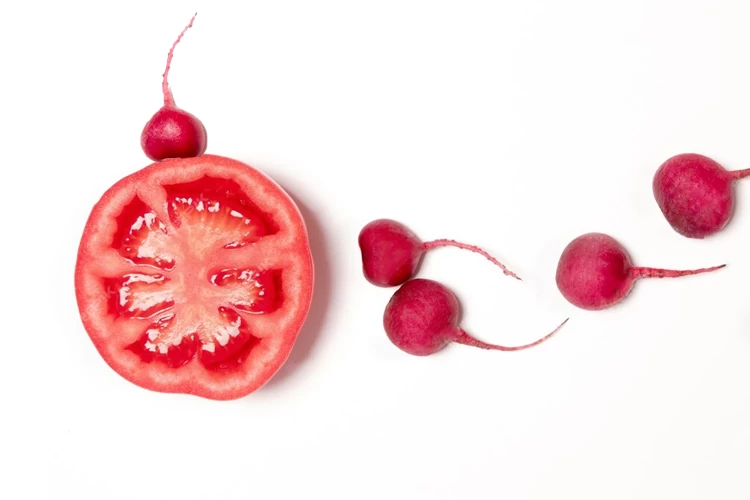
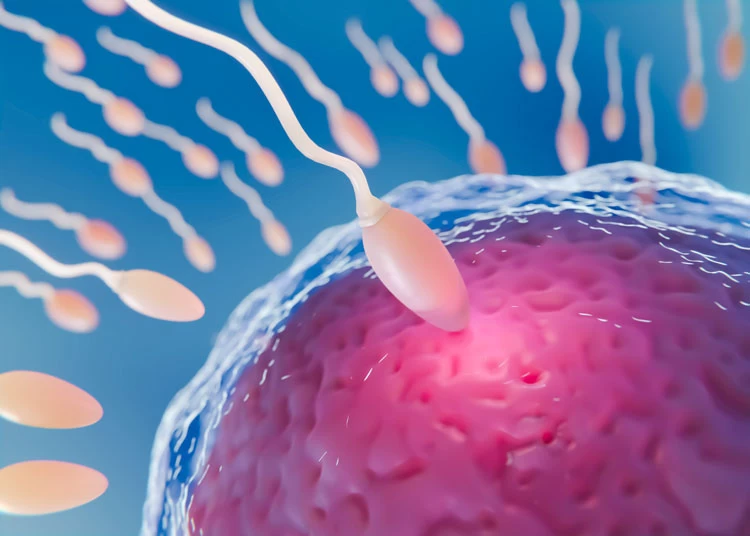
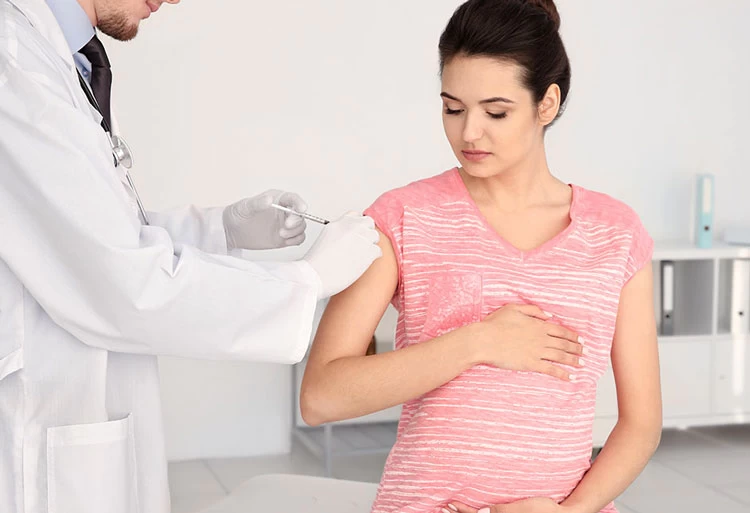

No reviews
Your comment